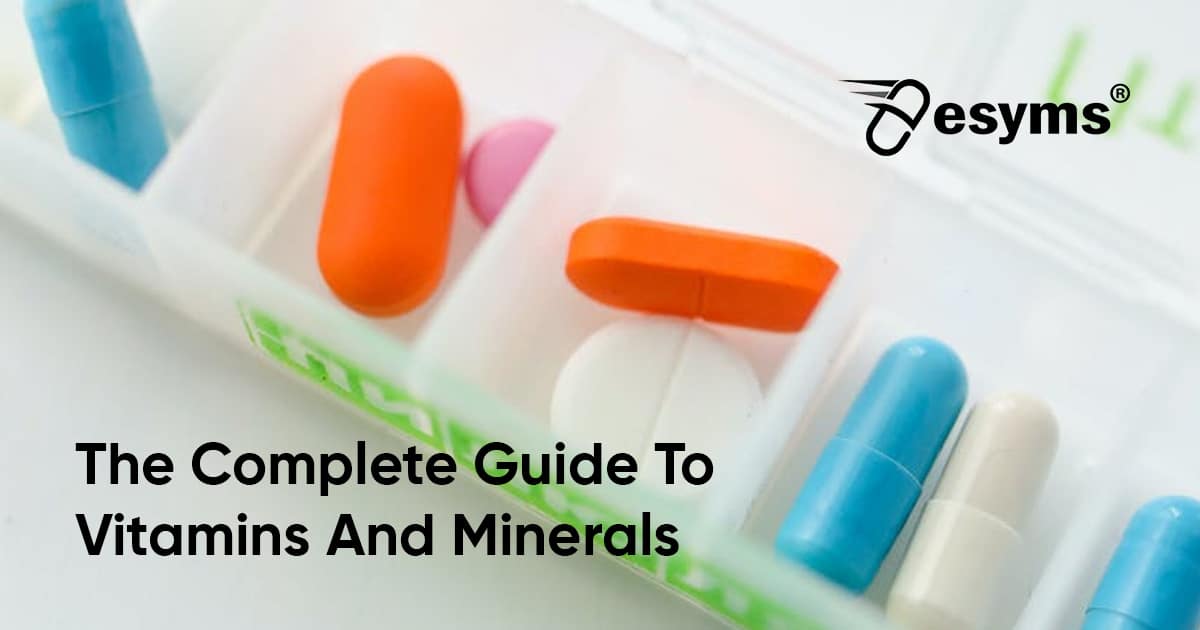
Blackmores Supplements In Malaysia – Reviews, Prices And More
Looking to buy Blackmores supplements in Malaysia? Read our full guide and review of popular Blackmores products you can find on the pharmacy shelves.

Our bodies needs essential vitamins and minerals in order to function properly. They are involved in normal cell function, growth and development. Sometimes, due to improper diet and certain medical conditions, the body may lack certain essential vitamins and minerals. This is where vitamin and mineral supplements can be beneficial for you to fill in this gap.
Without going too scientific, the body needs 13 essential vitamins, or compounds. These vitamins are divided into water-soluble and fat soluble vitamins. The water soluble vitamins are ascorbic acid (vitamin C), thiamin, riboflavin, niacin, vitamin B6 (pyridoxine, pyridoxal, and pyridoxamine), folacin, vitamin B12, biotin, and pantothenic acid. The fat soluble vitamins are vitamins A,D,E and K.
Here are the full list of vitamins:
Vitamin A helps form and maintain healthy teeth, bones, soft tissue, mucous membranes, and skin. Foods rich in vitamin A include eggs, citrusy fruits and vegetables, and beta carotene-rich vegetables such as brocoli, spinach, and most dark green, leafy vegetables.
Vitamin C, or ascorbic acid is beneficial for our immune function. Citrus fruits such as oranges, lemons, blackcurrant, berries and kiwis are rich in vitamin C. Vitamin C also acts as an antioxidant that promotes healthy teeth and gum and helps absorption of iron in the body.
Vitamin D can be obtained from sunlight by being exposed for 10-15 minutes, 3 times a week. It is difficult to obtain vitamin D from dietary sources. Vitamin D is primarily used to help you absorb calcium to maintain healthy teeth and bones.
Vitamin E, known as tocopherol is an antioxidant and anti-inflammatory your body needs to support your immune system and help your cells to regenerate. It is commonly used topically on your face to reduce inflammation and make your skin look younger. You can get Vitamin E from consuming vegetable oils, nuts and seeds.
Vitamin K is a fat-soluble vitamin which has an essential role in bone health and wound healing. You can get Vitamin K from consuming green, leafy vegetables such as kale, spinach and romaine lettuce.
Vitamin B1, or Thiamine helps the body cells change carbohydrates into energy and is essential for heart function and healthy nerve cells. You can get it from consuming food like beef, liver, nuts, oats, seeds, and legumes.
Vitamin B2, or Riboflavin works together with the other vitamins and is important for production of red blood cells and body growth. Food rich in riboflavin include lean meats, eggs, green vegetables and grains.
Vitamin B3, also known as Niacin is important for heart health and lowering cholesterol. It also has benefits in brain and skin function. You can get Vitamin b3 from consuming foods like chicken breast, beef, salmon, tuna, or lentils.
Vitamin B4 is also known as Adenine. It primarily helps with protein synthesis and generating energy. When combined with the compound ribose, it produces Adenosine which is important for normal heart function. You can find vitamin B4 in foods such as yeast, grains, honey, aloe vera and green, leafy vegetables.
Vitamin B5 is also known as Pantothenic Acid. It is important for blood cell production and converting proteins and carbohydrates into energy. It is important for healthy hair, eyes, skin, liver and digestive track function. Foods rich in Vitamin B5 include: Broccoli, cabbage, mushrooms, nuts, peas, lentils, poultry, dairy products and eggs.
Vitamin B6 is known as Pyridoxine. It is important for the production of red blood cells and has benefits in regulating mood and brain health. Your body cannot produce vitamin b6, so you have to obtain it from food sources such as turkey, chickpeas, tuna, salmon, potatoes and bananas. You can also take vitamin b6-rich supplements.
Vitamin B7 is known as Biotin. It helps the body metabolize fats, carbohydrates, and protein. You can get it from Biotin-rich foods such as baking yeast, wheat bran, organ meats, cooked, whole eggs and oysters.
Folate helps create new healthy red blood cells. Folic acid, it’s synthetic form are usually taken during pregnancy as a supplement. Folate-rich foods include legumes, asparagus, eggs, leafy greens, broccoli, nuts and seeds.
Vitamin B12 has many uses, including keeping your nerves healthy, supporting the production of DNA and red blood cells, as well as maintaining normal brain function. It can primarily be obtained from animal products such as meat and dairy. Vegetarians may benefit from closely tracking their B12 levels and taking vegetarian-friendly vitamin B12 supplements.
Minerals are elements in food that our bodies needs to develop and function normally. The minerals essential for health include: calcium, phosphorus, potassium, sodium, chloride, magnesium, iron, zinc, iodine, chromium, copper, fluoride, molybdenum, manganese, and selenium.
Lets look at what are some of the common minerals in the body used for.
Calcium is found in food like milk. When consumed, it is stored in teeth and bones to make them healthy and strong. Potassium, sodium, and chloride are electrolytes in your body fluids which are required for your body to produce energy and move your body. Magnesium helps your body regulate muscle and nerve function, blood sugar levels, and blood pressure. Iron is required for the production of red blood cells. Zinc is required for your body’s immune system and plays a role in cell healing and growth.
For people who take well-balanced diets, it is optional to take vitamin and mineral supplements. However, in cases of diets which lack variety, malnourishment or medical conditions, you may require additional health supplements to replenish any vitamin or mineral inadequacies in your body. Speak to one of our pharmacists if you need advice on taking vitamin and mineral supplements!
We hope we have given you a good understanding of the basic vitamin and mineral requirements your body needs. There are plenty of multivitamin and mineral supplements available for purchase in Malaysia. A good cocktail of vitamin supplements will help you keep a healthy body and daily lifestyle. If you require further personalized help with finding the right vitamin supplements, feel free to chat with one of our pharmacists for free via our telepharmacy service. Meanwhile check out our esyms shop below, we have a wide variety of multivitamins to choose from.

Looking to buy Blackmores supplements in Malaysia? Read our full guide and review of popular Blackmores products you can find on the pharmacy shelves.

Looking for multivitamins for general health? In this complete guide, you’ll learn the best multivitamins to buy in Malaysia for different use cases. Enjoy!